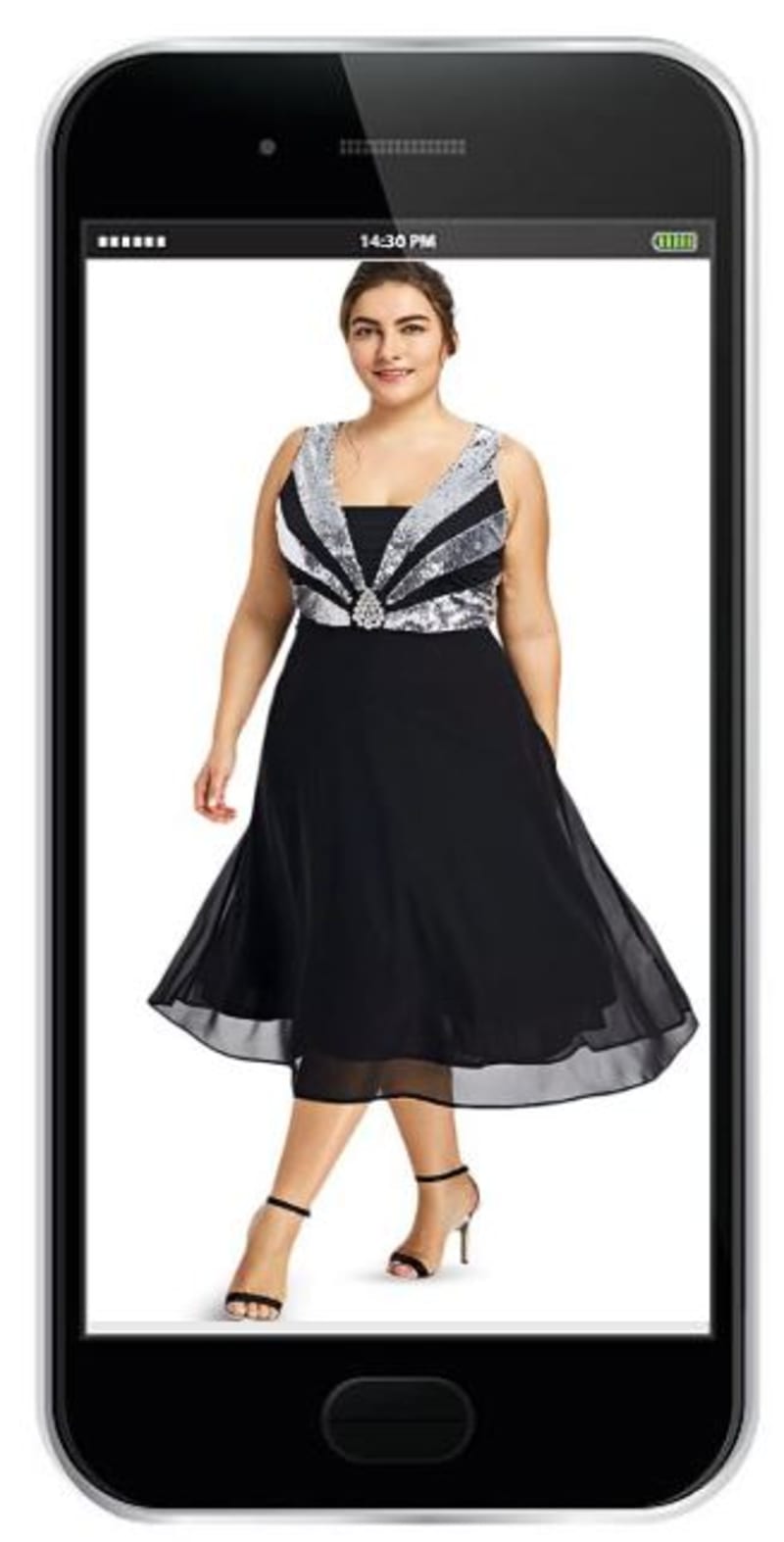This idea describes a system for someone to shop for clothing from home while getting as close to an in-store experience as possible. The advantages of physically being in a clothing store are that you can see and feel the products and try them on to see if they fit and look good.
The customer would install an app and then calibrate the camera on their smartphone by taking pictures of a standard sized item, such as a dollar bill, from a variety of distances and poses. The software would go through appropriate transforms to calculate effective focal length and lens distortion, storing those corrections on the phone.
The customer would then establish a payment method through a variety of online payment services.
The customer would then request to shop at a participating clothing store. Inside the store, there would be a number of fixed streaming cameras, as well as a smartphone carried by an onsite employee to stream video to the customer and show the store employee the necessary views of the customer.
The store employee takes a shopping request from a waiting customer, then browses through their racks of clothing per the customer's guidance while the customer observes everything. One the customer spots an article of clothing of interest, they ask the employee to scan the clothing with the employee's calibrated phone camera. At this point a shopping-as-a-service server in a data center will auto-dimension the article of clothing and send the information to the customer's phone.
The customer then scans their own body with their own calibrated smartphone, which sends their body dimensions to the server. The server then builds a model of the customer's body as if they were wearing the article of clothing, factoring in physical dimensions of body and clothing as well as appearance of the clothing as if the customer were wearing it.
Both customer and store employee then chat about how well the clothing virtually fits and looks on the customer, and the customer may choose to buy the clothing using the established payment method.
The article of clothing then may be picked up curbside, shipped through a standard shipper, or picked up as part of a rideshare service that's transporting passengers with additional parcel delivery, or is designated as parcel-only, for immediate delivery to the customer's home. The delivery carrier receives a fee as previously agreed upon for making deliveries.
Like this entry?
-
About the Entrant
- Name:Lynn Keiser
- Type of entry:individual
- Patent status:none

